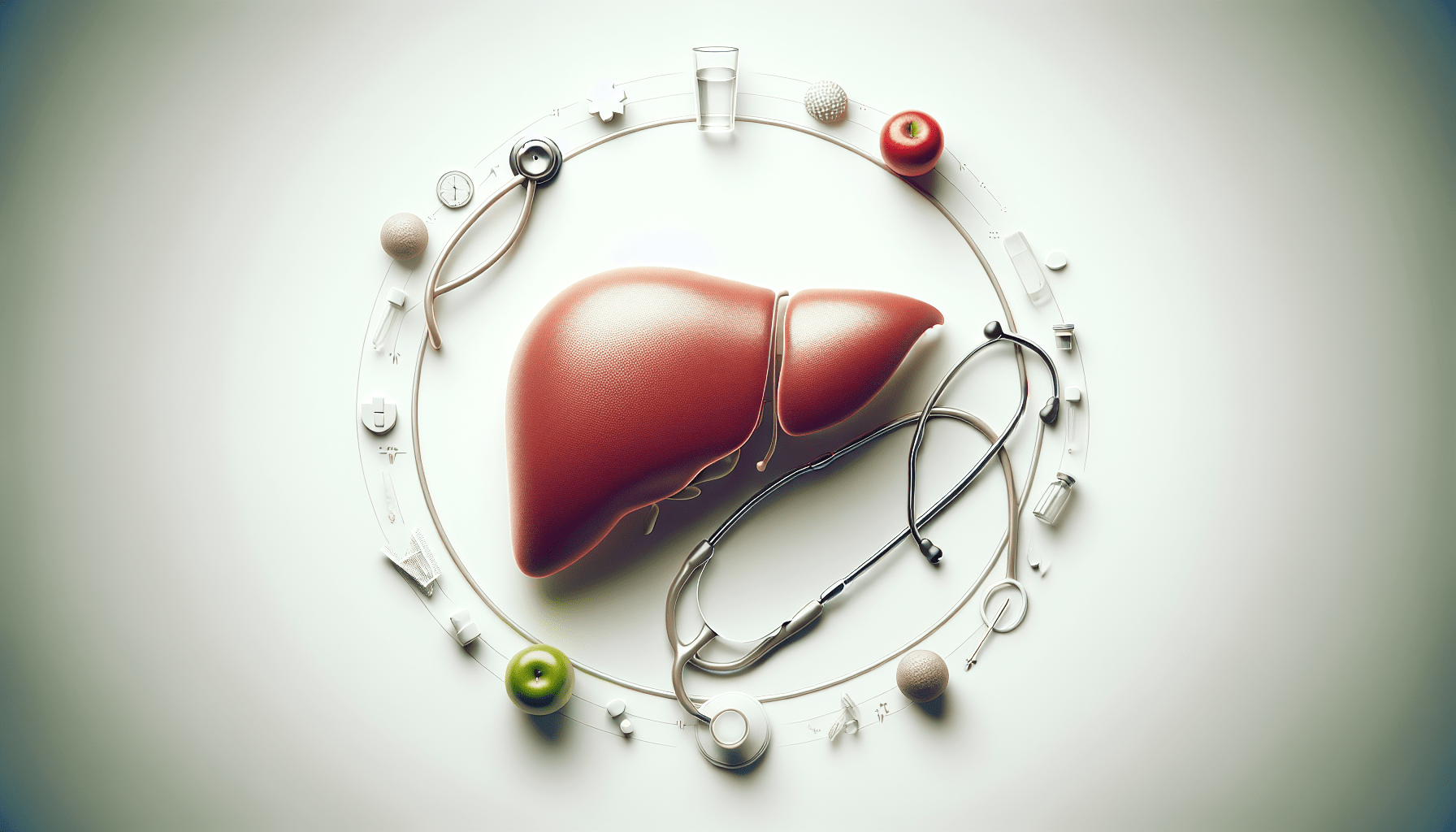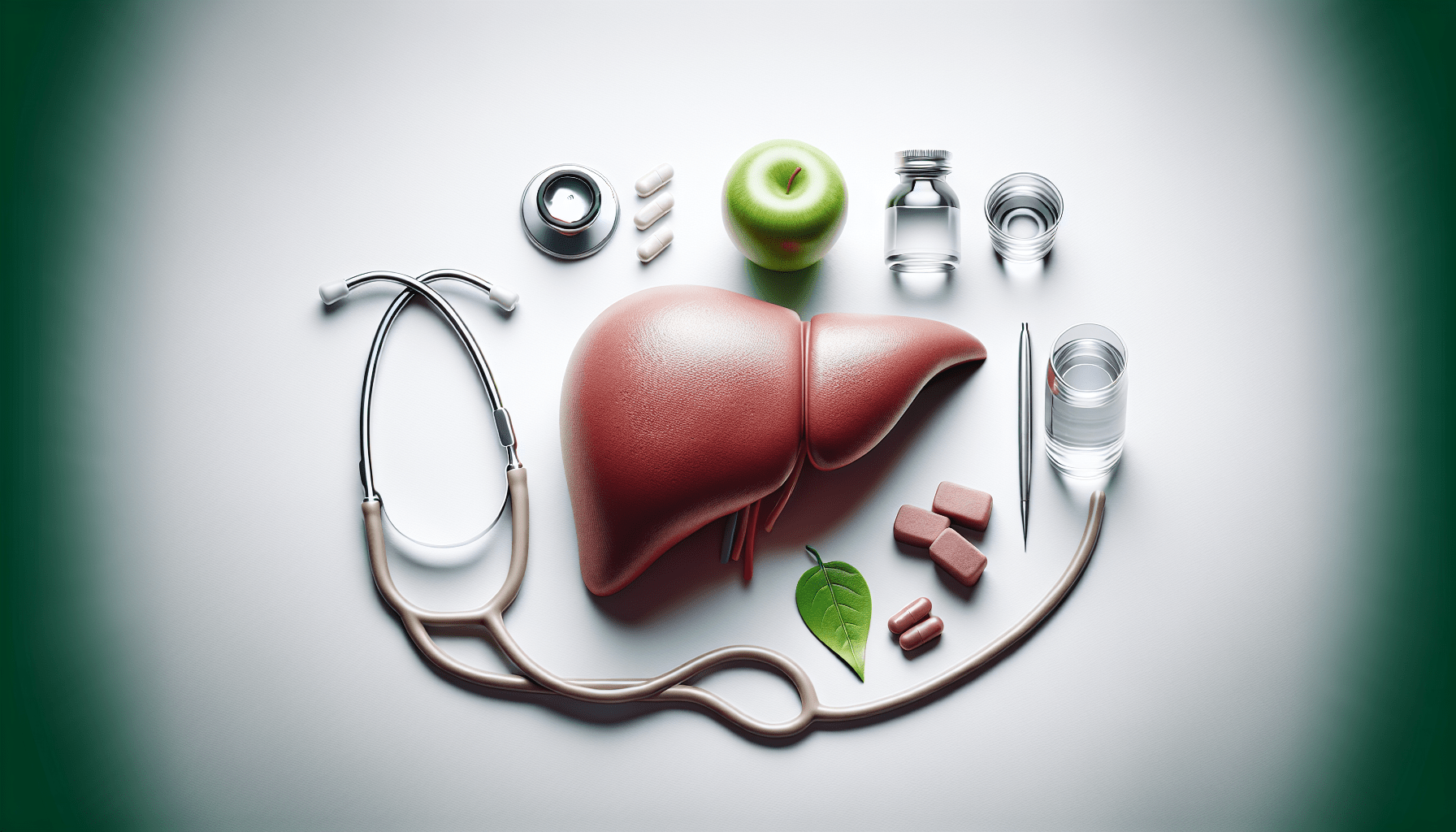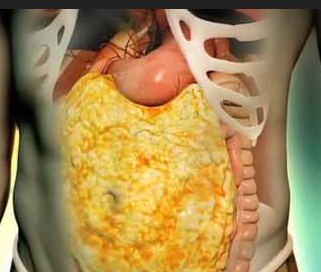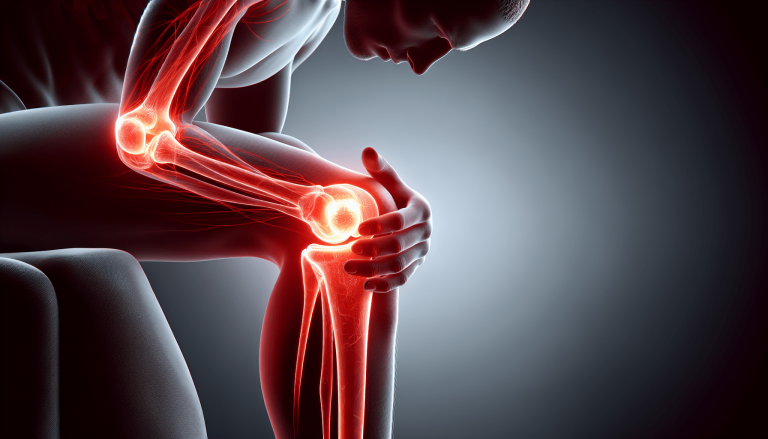How Do I Make Sure My Liver Is OK?
When it comes to your health, keeping your liver in tip-top shape is crucial. In “How Do I Make Sure My Liver Is OK?”, you’ll discover practical tips and easy-to-follow advice on maintaining a healthy liver. From understanding the importance of regular screenings to incorporating liver-friendly foods into your diet, this article covers all the essentials you need to know. By making a few simple lifestyle changes and staying informed, you’ll be well-equipped to ensure your liver stays happy and healthy. Have you ever found yourself worrying about the state of your liver? It’s a crucial organ that often doesn’t get the attention it deserves until something goes wrong. Understanding how to keep your liver healthy and recognizing the signs that it might be in trouble is important for maintaining overall wellness.

What Does the Liver Do?
Your liver is an incredibly hardworking organ. It performs over 500 vital functions, many of which are essential for your survival. From metabolism to detoxification, your liver plays a role in numerous bodily processes.
Metabolism and Energy Storage
Your liver helps process nutrients from the food you eat. It converts these nutrients into essential blood components, stores vitamins and minerals, and produces proteins. One of its key roles is converting glucose into glycogen for storage, which can be later converted back into glucose when your body needs energy.
Detoxification
Another critical function of the liver is detoxifying harmful substances. It filters your blood, removing toxins, including alcohol and drugs. Your liver also breaks down old or damaged blood cells and produces bile, which is necessary for digestion and absorption of fats.
Immune Function
Your liver is also part of the immune system. It contains cells called Kupffer cells that capture and digest bacteria, fungi, parasites, and worn-out blood cells, aiding in the defense against infection.
How Can I Tell If My Liver Is Healthy?
Maintaining liver health isn’t just about luck or genetics; it’s about making informed lifestyle choices and being aware of the signs that your liver might need attention.
Signs of a Healthy Liver
A healthy liver should function without problems. Most people with a healthy liver:
- Do not have jaundice (yellowing of the skin and eyes)
- Do not experience chronic fatigue or weakness
- Do not suffer from unexplained weight loss or gain
- Have normal digestion and no significant issues with bowel movements
Symptoms of Liver Problems
If your liver is in distress, it may give you some signals. Keep an eye out for the following symptoms:
- Jaundice: Yellowing of the skin and eyes is a telltale sign of liver issues
- Fatigue: Consistent tiredness despite adequate rest
- Abdominal Pain: Pain or discomfort in the upper right quadrant of your abdomen
- Loss of Appetite: Unexplained changes in your eating habits
- Dark Urine: Darker urine could indicate excess bilirubin
- Pale Stools: Light-colored stools may signal bile duct problems
- Swelling: In the legs and ankles, known as edema, or fluid build-up in the abdomen, known as ascites
Risk Factors for Liver Disease
Certain factors can increase your risk of liver disease. knowing these can help you take proactive measures to protect your liver.
Common Risk Factors
- Excessive Alcohol Consumption: Chronic drinking can lead to cirrhosis and liver failure
- Obesity: Linked to non-alcoholic fatty liver disease (NAFLD)
- Viral Infections: Hepatitis B and C can cause liver inflammation
- Medications: Certain drugs can harm the liver if taken in large quantities or long term
- Inherited Conditions: Genetic predispositions such as hemochromatosis or Wilson’s disease
- Exposure to Toxins: Working in environments with harmful chemicals can take a toll on the liver
Lifestyle Choices Impacting Liver Health
Implementing healthy habits significantly contributes to liver well-being. Here’s how:
Diet and Nutrition
What you eat directly impacts your liver. A balanced, nutrient-rich diet aids in keeping your liver in top shape.
| Good for Your Liver | Bad for Your Liver |
|---|---|
| Fruits and vegetables | Excessive alcohol |
| Whole grains | High-fat foods |
| Lean proteins | Sugary drinks and snacks |
| Healthy fats | Processed foods |
Exercise Regularly
Physical activity can help maintain a healthy weight, which in turn reduces liver fat. Aim for at least 30 minutes of moderate exercise most days of the week.
Limit Alcohol Consumption
Moderation is key. Keep your alcohol intake within the recommended guidelines – no more than one drink per day for women and two drinks per day for men.
How to Support Liver Health
By making informed choices and adopting preventative measures, you can support your liver’s health.
Stay Hydrated
Adequate water intake helps your liver function properly and flushes out toxins.
Sleep Well
Quality sleep is crucial for your liver’s regenerative processes. Aim for 7-9 hours of sleep per night.
Monitor Medications
Always follow prescribing guidelines and avoid mixing medications without consulting your healthcare provider.
Get Vaccinated
Vaccinations against hepatitis A and B can help protect your liver from these viral infections.

Regular Liver Function Tests
Routine check-ups and liver function tests (LFTs) are essential in monitoring your liver’s health.
What Are Liver Function Tests?
LFTs measure various enzymes, proteins, and substances produced or excreted by the liver. These tests can indicate the overall health of your liver and identify specific issues.
Key Liver Enzymes and Substances
| Enzyme/Substance | What It Indicates |
|---|---|
| ALT (Alanine Transaminase) | High levels can indicate liver damage |
| AST (Aspartate Transaminase) | Increased levels may signify liver disease |
| ALP (Alkaline Phosphatase) | High levels could indicate bile duct problems |
| Bilirubin | Elevated bilirubin causes jaundice and liver function issues |
| Albumin | Low levels may indicate liver disease |
When to Get Tested
Routine screenings may be recommended if you have risk factors for liver disease, exhibit symptoms, or have a family history of liver problems. Talk to your healthcare provider about how often you should get tested based on your health profile.
Natural Remedies and Lifestyle Changes
Diet isn’t the only way to support a healthy liver. Various natural remedies and lifestyle adjustments can further boost liver function.
Herbal Supplements
Some herbs are known to promote liver health, such as milk thistle, dandelion root, and turmeric. Always consult your doctor before starting any supplement regimen.
Practice Safe Sex
Prevent viral hepatitis by practicing safe sex, reducing the number of sexual partners, and avoiding sharing needles.
Avoid Environmental Toxins
Reduce exposure to toxins by using protective gear if you work with chemicals and by choosing natural cleaning and personal care products.
When to See a Doctor
Knowing when to seek medical advice is crucial for timely intervention in case of liver problems.
Persistent Symptoms
If you notice symptoms such as severe fatigue, abdominal pain, jaundice, swollen legs/ankles, or unexplained weight loss, schedule an appointment with your healthcare provider.
Family History
If liver disease runs in your family, consider regular screenings and discussions with a specialist to monitor your liver health closely.
Chronic Conditions
Managing underlying conditions like diabetes or high blood pressure can prevent liver complications. Regular follow-ups with your healthcare provider are essential in these cases.
Conclusion: Taking Charge of Your Liver Health
Your liver is a vital organ that requires care and attention. By making healthy choices, staying informed, and paying attention to your body’s signals, you can ensure your liver stays in good shape. Remember, a proactive approach is always better than reactive treatment when it comes to your health. So, keep your liver happy, and it will keep you healthy in return.
Additional Resources

Fatty liver? Try THIS 60-second morning ritual to reverse it fast
Doctors can tell you this is not medically possible as much as they want… But the lab results coming in are screaming otherwise!
Over 16,907 patients who used this 60-second morning ritual… Not only reversed their fatty liver (within 90 days)…
They also dropped pounds and pounds of body weight they never thought possible
Best part?
They did this without impossible-to-follow diets, torturous exercise or dangerous surgery.







